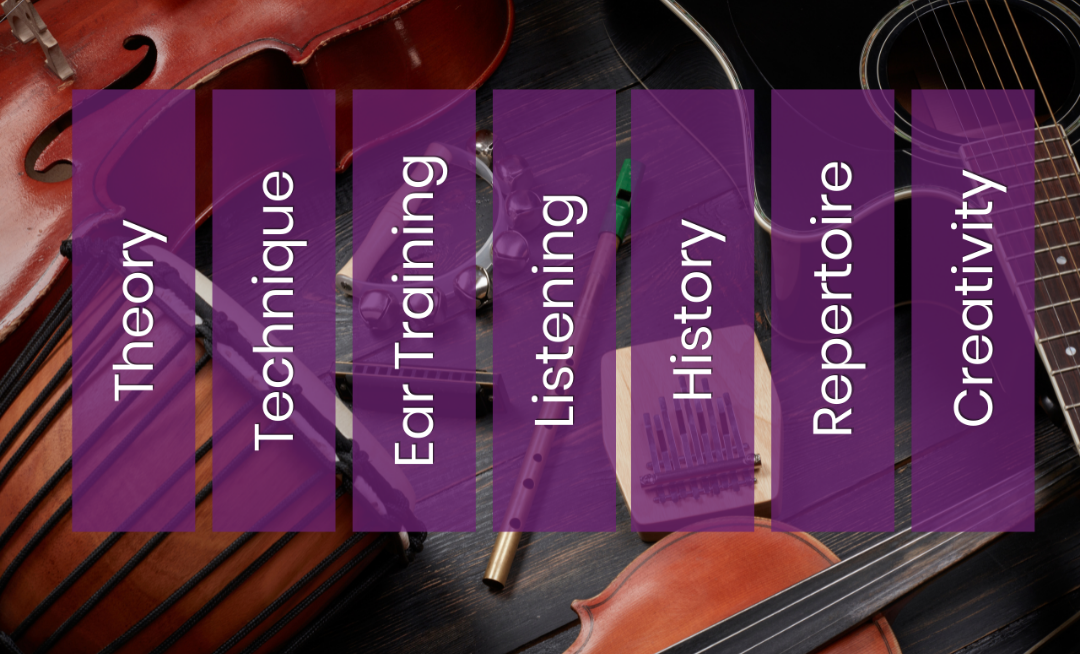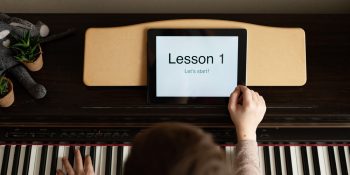
7 Expressions – Comprehensive Music Education
Music is understood by all. All you have to do is sit back, listen and enjoy. But as a subject to learn, it is vast. Learning music takes time but with the right approach, that journey can be made easier to understand. One of the most fascinating things about theory of music is that it has a structural pattern which helps us transition across various topics of the subject.
To understand the elements of music we will classify them based on their functions and we will call them expressions of music. We have devised a structure for you in terms of these 7 expressions which will constitute all the topics that one learns in music.
Music Theory : It is important to have an understanding of your concepts. Your students will be new to music but it is important to build a foundation of their understanding around these concepts. Give them brief and accurate information about a topic’s background and how it translates to the instrument.
Technical Exercise : This category will deal with all the practical aspects of dealing with the instrument. From practicing techniques to integrating theory in their instrument, it will include different kinds of exercises to build up their skill on their respective instruments. It is vital that every student follow the instructions given in the exercise so that they build the right habits that will elevate their ability to perform.
Ear Training : All the great musicians have a very good set of ears. As a musician, developing your ear is one of the most important exercises that one deals with. It is important to expose your students to ear training exercises early on so that they can get a hang of the concept. Also it takes a lot of years to develop your ears.
Critical Listening : This is the part where you ask your students to listen to other’s music. Also, it is important to train your students to have a listening ear of a musician and not a consumer. We dissect the various intricacies and dynamics of the song, learn from them and apply it in their own instrument.
Music History & Performance : As a student of music, it is good to know its roots. A study of how music has evolved and taking inspiration from different performers from various eras. Also, to study evolution of techniques from different eras and performance skills that one can be motivated from. Learn showmanship from various artists, use it in your own performances but practice those gestures so that you feel comfortable during the performance. Performance is an entertainment art, so learn ways to involve your audience in your art.
Repertoire : You can only show skills in your instrument when you can showcase a song or a piece. Thus it is safe to say the more songs a student learns, the more skilled they become in their instrument. Learning a song also motivates the student to do better and learn the instrument further. Teach students songs from different genres and challenge them technically at every step. Building a repertoire should also build their confidence of executing techniques in their instrument.
Improvisation : This is the desire of any musician. A dream to create something of your own. A music that you can call yours. Everyone has creativity and everyone has an urge to create something original. But being original is work, it is not given, it is crafted through skills learned over time. It is built from an aggregation of many inspirations. So it is important to give students a few tools and a taste of what creating music means in their early stage so that they can develop and create their own style as they progress through different levels of music.
With these 7 expressions, we cover all the important aspects of learning music. So dividing your sessions and categorizing your lessons in these brackets will help students get a perspective of the topics they are learning which will also help them understand how to effectively use the lessons in their instrument. A structured lesson is always retained better which further enhances the quality of education which in turn helps one thrive in their instrument.



 Version
2.0
Version
2.0